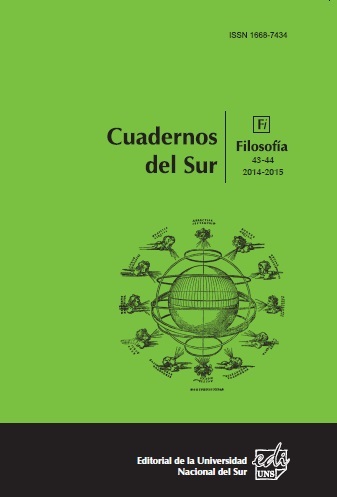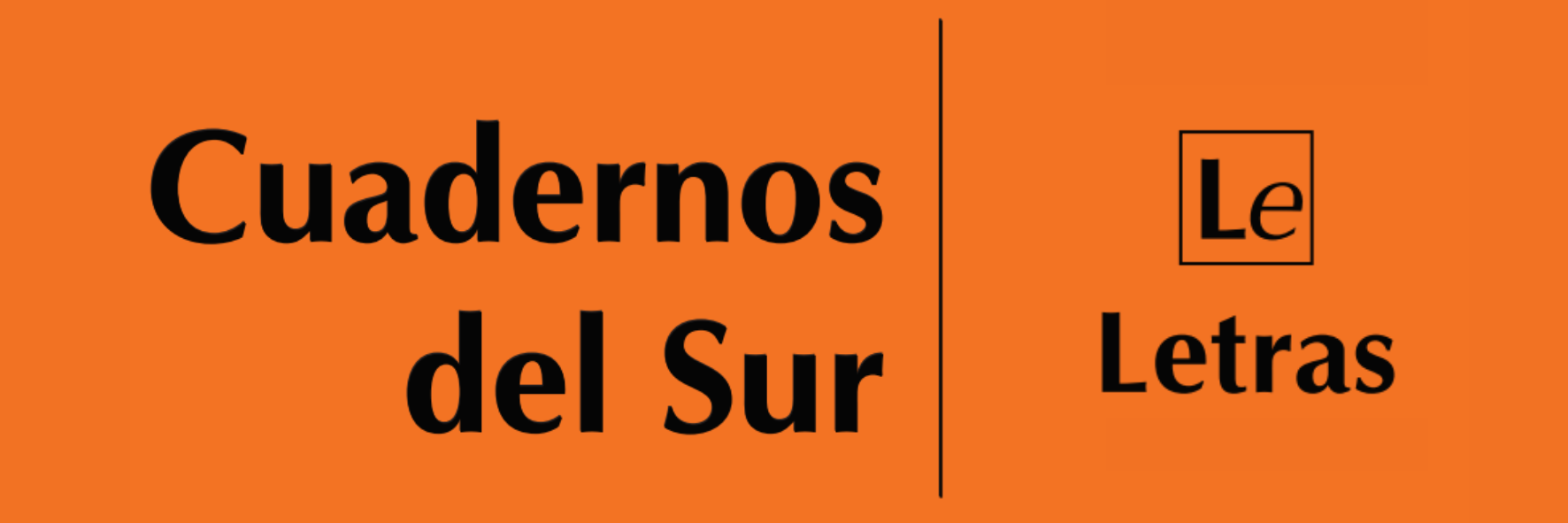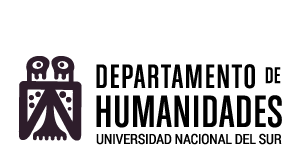Cartografía filosófico-política del ciberespacio: posturas extremas y moderadas
Palabras clave:
Ciberpolítica, Gobernanza, IdeologíasResumen
Las tecnologías de la información y de la comunicación presentan nuevos desafíos para la teoría y la fi losofía políticas, debido a sus transformaciones de gran escala y alcance. Sus exigencias se plasman en necesidades institucionales que consignan un espacio “ciberpolítico”, esto es, un cúmulo de problemáticas propias de la gobernanza de la red de redes –Internet– que se traduce en la formación de nuevas instituciones –v. gr. ICANN–. La pregunta que se intenta responder aquí es: ¿qué caracteriza los discursos políticos del ciberespacio? La hipótesis propuesta es que se pueden interpretar las variadas posturas ciberpolíticas a partir de su relación con los actores que se disputan la regulación del ciberespacio. Tomando como punto arquimédico esa relación, se distingue entre posturas extremas –ciberconservadurismo y ciberlibertarismo– y posturas moderadas –ciberliberalismo y cibersocialismo–. Mediante la indagación de las obras de los principales defensores de cada postura (Goldsmith, Wu, Barlow, Assange, Lessig, Barbrook y Filby) se procura mostrar las modifi caciones que implica el prefi jo “ciber-” en las posturas políticas tradicionales y, asimismo, resaltar las ventajas de las posturas moderadas sobre las extremas.
Descargas
Citas
Anderson, Chris (2009), Gratis: el futuro de un precio radical, Barcelona, Ediciones Urano.
Assange, Julian (2012), Cypherpunks: Freedom and the Future of the Internet, Nueva York, OR Books.
Barbrook, Richard (2000), “Cyber-Communism: How the Americans are Superseding Capitalism in Cyberspace”, Science as Culture, vol. 9, nº 1, pp. 5-40.
----- (2001), “HyperMedia Freedom”, en Ludlow, Peter (ed.), Crypto Anarchy, Cyberstates and Pirate Utopias, Cambridge (EE.UU.), The MIT Press, pp. 47-58, [1996].
Barbrook, Richard y Cameron, Andy (2001), “Californian Ideology”, en Ludlow, Peter (ed.), Crypto Anarchy, Cyberstates and Pirate Utopias, Cambridge (EE.UU.), The MIT Press, pp. 363-388, [1995].
Barlow, John Perry (2001), “A Declaration of the Independence of Cyberspace”, en Ludlow, Peter (ed.), Crypto Anarchy, Cyberstates and Pirate Utopias, Cambridge (EE.UU.), The MIT Press, pp. 27-30, [1996].
Belarte, Sabrina (2013), Economía del don: una utopía latente, Madrid, Editorial Académica Española.
Berners-Lee, Tim (2010), “Long Live the Web”, Scientifi c American, vol. 303, nº 6, pp. 80-85.
Busch, Otto von y Palmås, Karl (2006), Abstract Hacktivism: The Making of a Hacker Culture, Londres y Estanbul, Bitstream Vera-Lightning Source.
Cleland, Scott (2011), “In Defense of Rule of Law & ‘Cyber-Conservatism’”, Precursor Blog: Proven Thought Leadership, [disponible en: http://precursorblog.com/?q=content/in-defense-rule-law-cyber-conservatism - consultado el 4 de julio de 2014].
Dery, Mark (2001), “Bit Rot”, en Ludlow, Peter (ed.), Crypto Anarchy, Cyberstates and Pirate Utopias, Cambridge (EE.UU.), The MIT Press, pp. 389-399, [2000].
Filby, Michael (2008), “Together in Electric Dreams: Cyber Socialism, Utopia and the Creative Commons”, International Journal of Private Law, vol. 1, nº 1/2, pp. 94-109.
Ford, John M. (1980), Web of Angel, Nueva York, Pocket Books.
Gibson, William (1984), Neuromancer, Nueva York, Ace Books.
Goldsmith, Jack y Wu, Tim (2006), Who Controls the Internet? Illusions of a Borderless World. Nueva York, Oxford University Press.
Golumbia, David (2015), “Ciberlibertarismo: los fundamentos extremistas de la ‘libertad digital’”, Prometeica. Revista de Filosofía y Ciencias, nº 10, año IV, pp. 105-127.
Hall, Kira (1996), “Cyberfeminism”, en Herring, Susan (ed.), Computer-mediated Communication: Linguistic, Social, and Cross-cultural Perspectives, Amsterdam, John Benjamins, pp. 147-170.
Himanen, Pekka (2001), The Hacker Ethic and the Spirit of the Information Age, Nueva York, Random House Trade.
Hughes, Eric (2001), “A Cypherpunk’s Manifesto”, en Ludlow, Peter (ed.), Crypto Anarchy, Cyberstates and Pirate Utopias, Cambridge (EE.UU.), The MIT Press, pp. 81-84, [1993].
Lessig, Lawrence (2006), Code: version 2.0, Nueva York, Basic Books.
Martí, José Luis (2008), “Alguna precisión sobre las nuevas tecnologías y la democracia deliberativa y participativa”, IDP. Revista de Internet, Derecho y Política, nº 6, pp. 3-12.
May, Tim C. (2001), “The Crypto Anarchist Manifesto”, en Ludlow, Peter (ed.), Crypto Anarchy, Cyberstates and Pirate Utopias, Cambridge (EE.UU.), The MIT Press, pp. 61-64, [1992].
McLuhan, Marshall (2001), The Medium is the Massage, California, Gingko Press, [1967].
Millarch, Francisco (1998), “Net Ideologies: From Cyber-Liberalism to Cyber-Realism”, Cybersociology Magazine, nº 4, [disponible en http://www.cybersociology.com/fi les/4_millarch.html - consultado el 4 de julio de 2014].
Mueller, Milton L. (2006), “The New Cyber-Conservatism: Goldsmith/Wu and the Premature Triumphalism of the Territorial Nation-State. Review of Goldsmith and Wu’s Who Controls the Internet. Illusions of a Borderless World”, Internet Governance Project [disponible en http://www.internetgovernance.org/2006/05/01/6-2006-the-new-cyber-conservatism-goldsmithwu-and-thepremature-triumphalism-of-the-territorial-nation-state-a-review-of-goldsmith--and-wus-who-controls-the-internet-illusions-of-a-borderless-w/ - consultado el 4 de julio de 2014].
----- (2010), Networks and States: The Global Politics of Internet Governance, Cambridge (EE.UU.)-Londres, The MIT Press.
Raymond, Eric S. (2001), The Cathedral and the Bazaar: Musings on Linux and Open Source by an Accidental Revolutionary, edición revisada, Sebastopol (EEUU), O’Reilly & Associates.
Turner, Fred (2006), From Counterculture to Cyberculture: Stewart Brand, the Whole Earth Network, and the Rise of the Digital Utopianism, Chicago, The University of Chicago Press.
Vinge, Vernor (1981), True Names, Nueva York, Dell.
Descargas
Cómo citar
Número
Sección
Licencia
Derechos de autor 2014 Lucas E. Misseri

Esta obra está bajo una licencia internacional Creative Commons Atribución-NoComercial 4.0.
Aquellos autores/as que tengan publicaciones con esta revista, aceptan los términos siguientes:- Los autores/as conservarán sus derechos de autor y garantizarán a la revista el derecho de primera publicación de su obra, el cuál estará simultáneamente sujeto a la licencia Atribución-No Comercial 4.0 Internacional CC BY-NC 4.0.
- Los autores/as podrán adoptar otros acuerdos de licencia no exclusiva de distribución de la versión de la obra publicada (p. ej.: depositarla en un archivo telemático institucional o publicarla en un volumen monográfico) siempre que se indique la publicación inicial en esta revista.
- Se permite y recomienda a los autores/as difundir su obra a través de Internet (p. ej.: en archivos telemáticos institucionales o en su página web) una vez publicado su trabajo, lo cual puede producir intercambios interesantes y aumentar las citas de la obra publicada. (Véase El efecto del acceso abierto).














